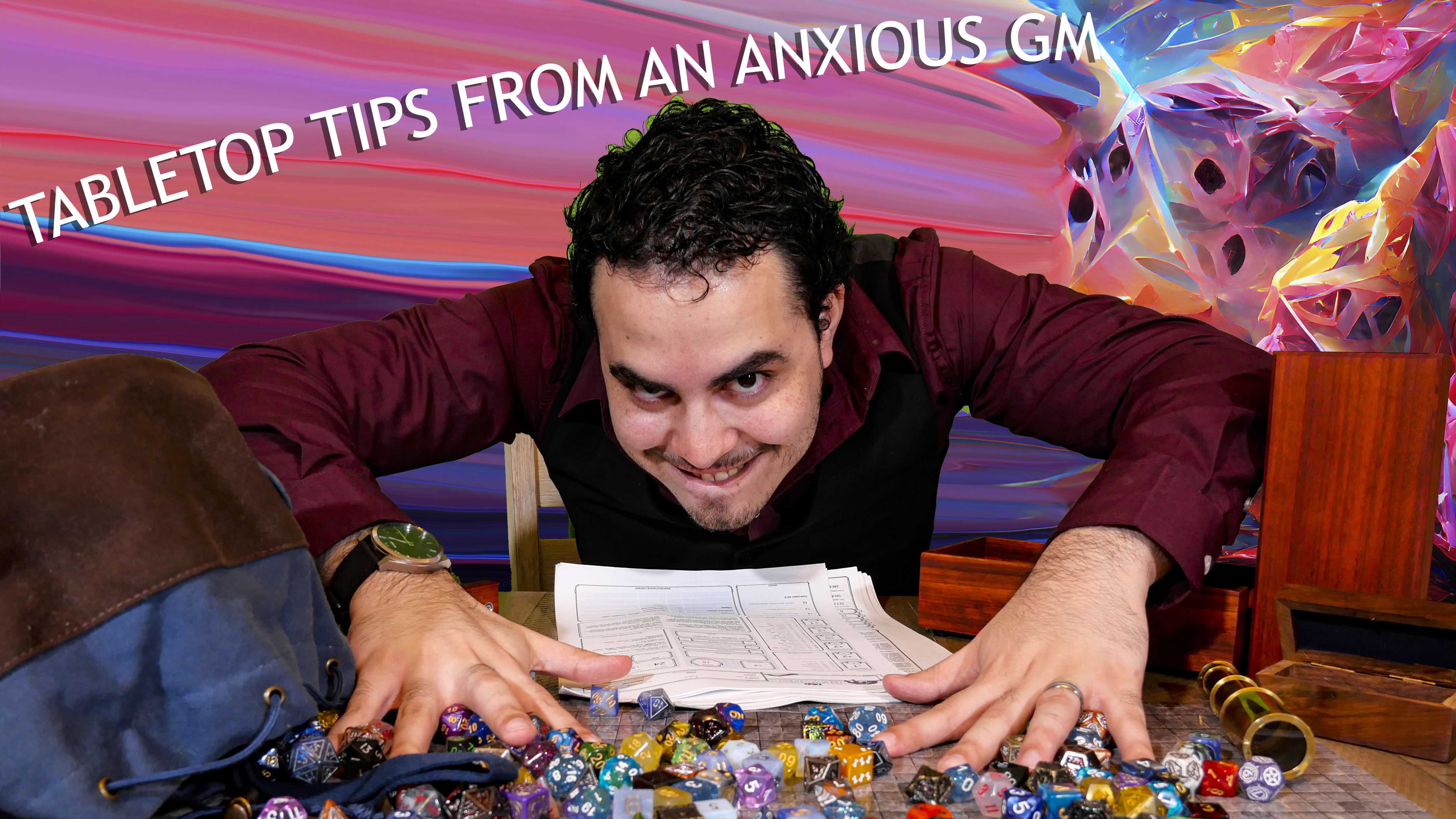How do I deal with metagaming? Tabletop tips from an anxious GM
Are you struggling between what you know and what your character should know? Here are some tips to get around that

Sign up to receive The Snapshot, a free special dispatch from Laptop Mag, in your inbox.
You are now subscribed
Your newsletter sign-up was successful
Metagaming is when a player uses knowledge from outside of the game to determine their actions, this can include known game mechanics or story elements. Even someone who doesn’t like to metagame can fall victim to metagaming. Maybe their character would act without pre-existing knowledge, but the very existence of that knowledge in the player’s head causes self-doubt. There are ways around that situation as well as many other metagaming scenarios. An author writing a novel knows what’s going to happen to the characters, but that doesn’t change how they write about them — maybe some foreshadowing, but they can’t avoid their fate. As someone who struggles with anxiety and depression — a combo that is less than ideal for a journalist or a game master juggling seven different players in a six-hour Dungeons & Dragons game — I know it’s tough to speak up when your character would act, and argue that your character would do it regardless of the information you have.
In this week’s column of Tabletop tips from an anxious GM (all of which can be found on our DND tips hub), I’ll be answering “How do I deal with metagaming?” in response to my previous tips piece that talked about consent and asking permission to take negative actions.
It can be tough to sit idly by when you know something that your character doesn’t, but you have to detach yourself from your character in these moments and think about what makes the most sense for the narrative. Let me explain.
TL;DR
Communicate! Talk to your party and GM about what’s okay and what’s not okay concerning metagaming. Some acceptable metagaming might be knowing your party members’ hit points. Questionable metagaming can be making a tough call between what your character would do instinctually with or without information known to the player — ask your party and GM for advice! Unacceptable metagaming is just straight up cheating, giving yourself an unfair advantage that you normally wouldn’t have within the narrative — don’t do this! Remember, roleplaying is not a competition — it’s a story. You’re all authors sitting around the table weaving a narrative that makes sense — even if you know the ending, it doesn’t change how the journey should unfold. Make the story interesting for your characters, and don’t get caught up in a competition that doesn’t exist.
How to deal with metagaming — An in-depth look

COMMUNICATION! There's only so many times I can say it — just kidding, it's always the answer. For those that don't know, metagaming is an action that a character takes based on knowledge that they don't have, but the player does. The best way to curbstomp metagaming is to communicate with your fellow party members or the GM. If you think you might be metagaming, ask your party or GM for some insight (not the kind you roll for). If you think another player is metagaming, let the GM handle it. It's their call whether or not something is considered metagaming. However, if the act in question may affect you, you have every right to speak up if you think there's a concern. Keep it civil and respectful, but stick up for yourself and your character.
Acceptable metagaming. This is entirely subjective, but is ultimately decided by the GM. Have the GM come up with a list of acceptable metagaming scenarios, so you don’t have to worry about every little thing. For example, I let my players know each other’s hit points, which makes healing easier to dish out. I also just recently let my players see the initiative count and the AC (armor class) of the creatures they’re fighting. This works for us because it makes combat a lot smoother and less of a slog. That might not work for you if you’re trying to keep the immersion and intensity of the unknown.

Questionable metagaming. The toughest kind of metagaming is an action that you’re trying to avoid based on out-of-character knowledge but one your character might do regardless. We can’t think of our characters as two dimensional — they don’t just base information on truths and not-truths. They can have theories and suspicions that lead them down a path that the player already knows about. For example, another player could have gotten trapped in a combat scenario, but my character wouldn’t know that unless they were suspicious about how long that character has been gone. Unfortunately, combat in D&D is very short in real-world time — six seconds per round, so this is a tough situation to justify. This would be up to the GM and the narrative they’re trying to explore.
Sign up to receive The Snapshot, a free special dispatch from Laptop Mag, in your inbox.
Unacceptable metagaming. This is also entirely subjective, but there are plenty of unspoken rules in roleplaying that may need to be spoken. In my games, don’t tell someone how to play their class, you don’t know their character. Just because you’ve fought against a monster before doesn’t mean this character has, so no, they don’t know that they’re immune to fire damage (although, if the creature is made of fire, it’s a safe theory). If you’ve given your consent to a player taking a potentially negative action that may affect the party, and they’ve covered their tracks, there shouldn’t be a reason that you know about it or that you would treat that character differently. Don’t let your player knowledge bleed into your character.
It’s not a competition — It’s a story. You can’t win at D&D or any other TTRPG. That’s not how the game works. You, your fellow players and your GM are weaving a story together. If you know some of the interweaving parts out of character, that’s okay! In fact, you can use that outside knowledge to enhance the story. For example, let’s say the party has been split, and one side of the party finds out critical information about your character’s past. Your character hasn’t received that info yet, so you can’t react to it, but you could roleplay. Start talking about your character’s past, especially around the space where that missing info takes place. You’re not metagaming per se — you’re simply creating an interesting parallel between the two scenes, and thus enhancing the narrative. As long as metagaming doesn’t give you an unfair advantage that you wouldn’t normally have, then it should be fine — again, it’s entirely up to GM discretion.

I hope this helps new players and GMs out there who are just jumping into TTRPGs. If you liked this column and want to see it continue, you can send me your own questions concerning mechanical, narrative, or social issues in the tabletop gaming space. You can email me at rami.tabari@futurenet.com or find me on Twitter.

Rami Tabari is the Reviews Editor for Laptop Mag. He reviews every shape and form of a laptop as well as all sorts of cool tech. You can find him sitting at his desk surrounded by a hoarder's dream of laptops, and when he navigates his way out to civilization, you can catch him watching really bad anime or playing some kind of painfully difficult game. He’s the best at every game and he just doesn’t lose. That’s why you’ll occasionally catch his byline attached to the latest Souls-like challenge.
